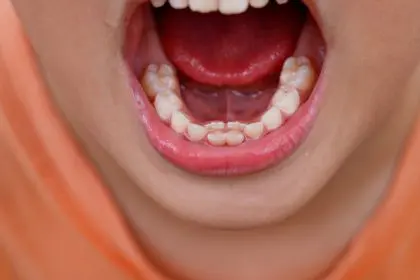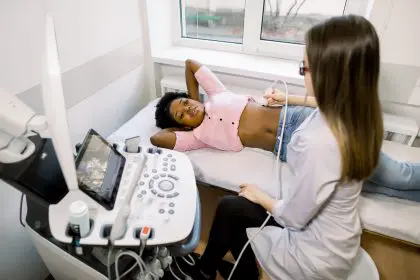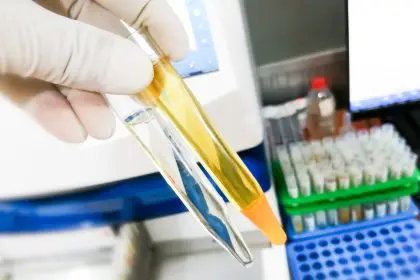Back pain is a ubiquitous complaint, often dismissed as a consequence of poor posture or the natural aging process. However, this common ailment can sometimes be a harbinger of more serious health issues, particularly those related to the kidneys. Understanding this connection is crucial for early detection and treatment of potential kidney problems.
The kidney-back pain connection
The kidneys, vital organs responsible for filtering waste from the blood, are located in the lower back region on either side of the spine. When these organs experience distress, the resulting pain can easily be mistaken for routine back discomfort. This misinterpretation can lead to delayed diagnosis and treatment of underlying kidney conditions.
Many patients complain of back pain, unaware that their kidneys might be the source. It’s essential to differentiate between muscular pain and potential organ issues. Recognizing the subtle differences can lead to earlier intervention and better health outcomes.
Red flags: When back pain may signal kidney problems
While not all back pain is kidney-related, certain symptoms can indicate a more serious condition:
- Pain location: Kidney-related pain typically manifests in the lower back, below the rib cage, and may extend to the sides of the abdomen.
- Urinary changes: Alterations in urination frequency, color, or discomfort during urination can accompany kidney-related back pain.
- Systemic symptoms: Fever, chills, nausea, and vomiting may occur alongside back pain in cases of kidney infection or stones.
- Swelling: Fluid retention causing swelling in the legs, feet, or ankles can indicate kidney dysfunction.
Common kidney culprits behind back pain
Several kidney conditions can manifest as back pain:
Kidney stones
These mineral deposits can cause intense, wave-like pain as they move through the urinary tract. The pain from kidney stones is often described as one of the most severe types of pain imaginable, with some patients comparing it to childbirth in terms of intensity.
Kidney infections
Also known as pyelonephritis, these bacterial infections can cause sharp lower back pain accompanied by fever and urinary symptoms. Left untreated, they can lead to permanent kidney damage.
Polycystic kidney disease
This genetic disorder causes cysts to develop in the kidneys, leading to persistent dull pain that worsens over time. It can also contribute to high blood pressure and kidney failure if not managed properly.
Chronic kidney disease
The gradual loss of kidney function may not cause noticeable symptoms initially, but as the disease progresses, back pain can develop due to kidney swelling or damage.
The critical importance of early detection
Ignoring persistent back pain or associated symptoms can have serious consequences. Early detection of kidney issues can make a significant difference in treatment outcomes. Waiting too long can lead to more invasive treatments or even kidney failure.
Regular check-ups and prompt medical attention when experiencing chronic back pain or other kidney-related symptoms are vital for catching these conditions in their early stages.
Diagnosis and treatment
Healthcare professionals employ various methods to diagnose kidney-related back pain:
- Urine and blood tests to check for infections, abnormalities, and kidney function
- Imaging tests such as ultrasounds or CT scans to visualize kidney structure and detect stones or cysts
Treatment approaches vary depending on the underlying cause:
- Kidney stones may require pain management, medications to facilitate passage, or surgical removal in severe cases
- Infections are typically treated with antibiotics and increased fluid intake
- Chronic kidney disease management may involve dietary changes, medications, and potentially dialysis in advanced stages
Preventive measures
Taking proactive steps to maintain kidney health can help prevent kidney-related back pain:
- Stay hydrated: Adequate water intake helps flush toxins and prevent stone formation
- Maintain a balanced diet: Limit salt and processed foods to reduce kidney strain
- Monitor blood pressure: High blood pressure can damage kidneys over time
- Use pain relievers judiciously: Overuse of non-steroidal anti-inflammatory drugs (NSAIDs) can harm kidney function
A call to attention
While back pain is common, it shouldn’t be ignored, especially when accompanied by other symptoms. Medical professionals advise patients to listen to their bodies. If something feels off, it’s better to consult a healthcare provider. Erring on the side of caution is always preferable when it comes to health.
By staying vigilant and recognizing the potential link between back pain and kidney health, individuals can take proactive steps to protect these vital organs and maintain overall well-being. Understanding the signs and seeking timely medical attention can make a significant difference in managing kidney-related issues and preserving long-term health.
This story was created using AI technology.
















